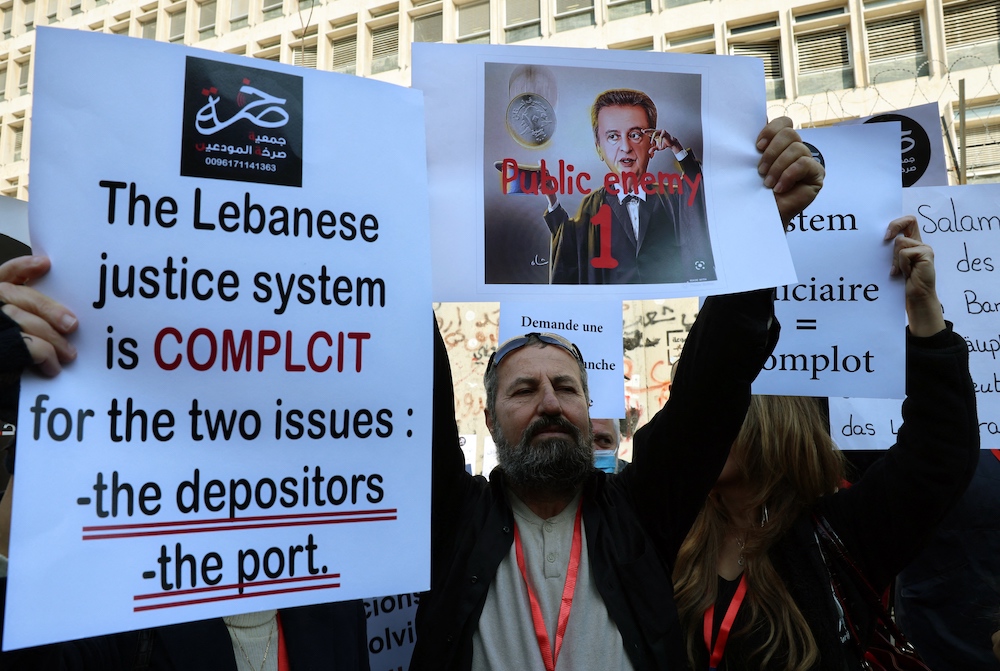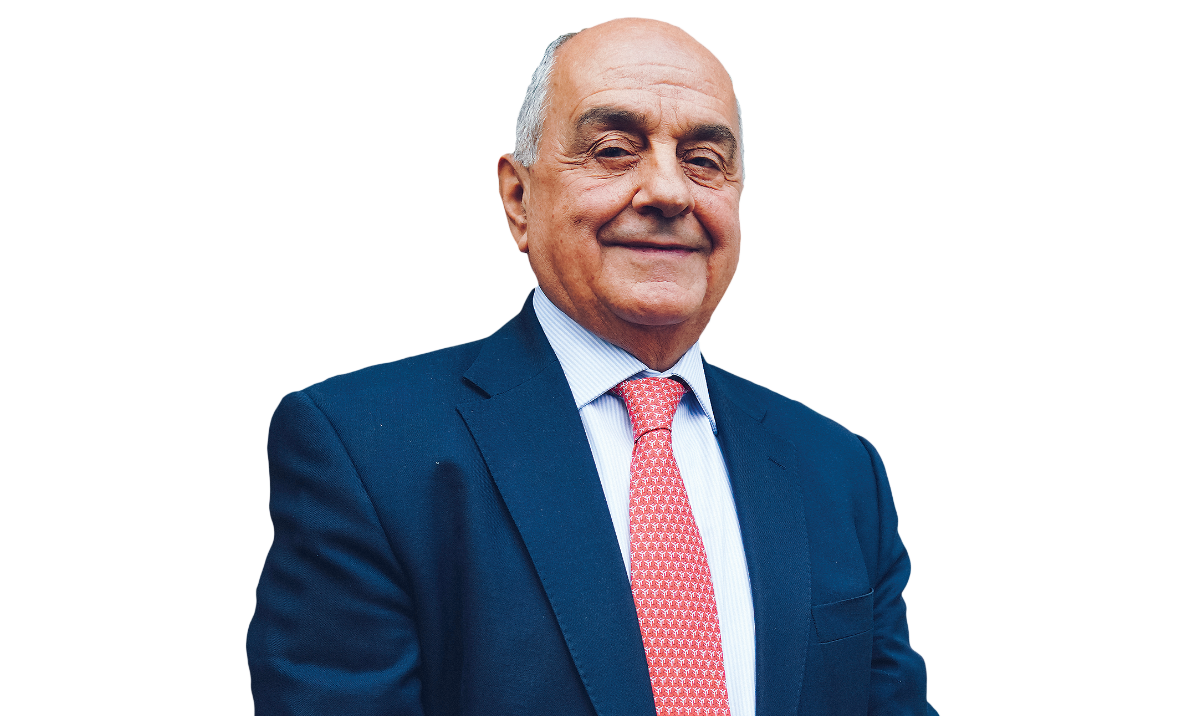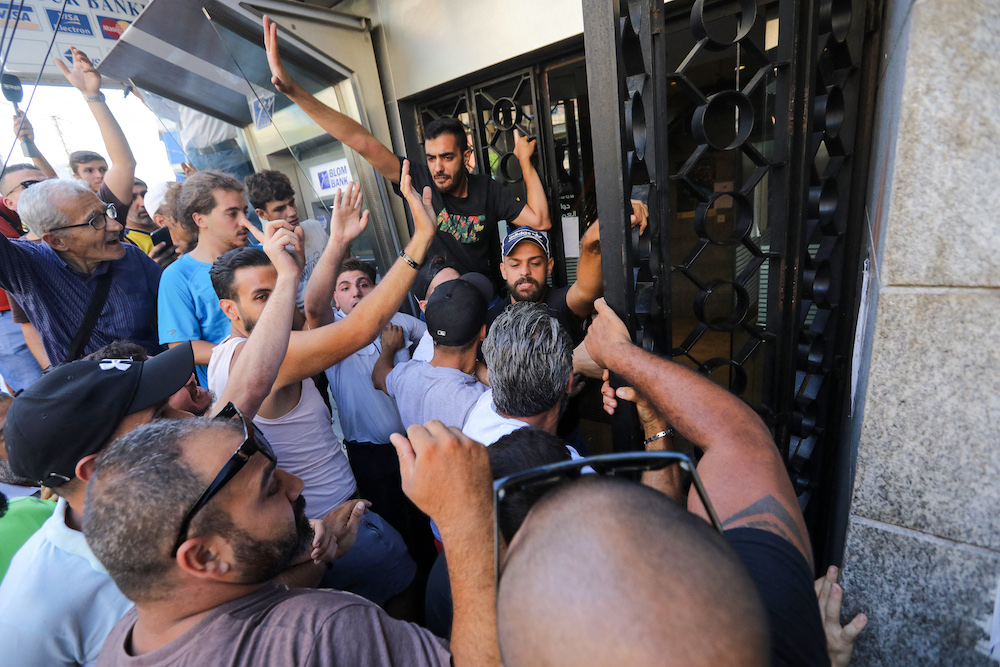LONDON: The financial crisis in Lebanon could be resolved within five to 10 years if a “well thought out program” is implemented that takes care of small depositors, addresses the needs of medium-sized ones and brings big depositors on board as partners in new banks, according to a finance industry expert in London.
The Lebanese economy has “continued to deteriorate to untenable levels,” according to the International Monetary Fund. Per capita gross domestic product fell by 36.5 percent between 2019 and 2021, and is expected to contract even further this year.
“They could have had a quicker recovery had they started earlier,” said George Kanaan, CEO of the Arab Bankers Association, a nonprofit professional organization in London whose members work in banking and related industries in the Arab world and the UK. “But three years have passed and nothing has happened.”
Kanaan, head of the ABA since 2009, has worked for prominent banks in New York, London and Saudi Arabia since 1975. He said it is not unusual that one or two banks might fail in a country, or perhaps a segment of the industry or a specialty sector, “but for a system to fail entirely is almost unique in history.”
The Lebanese pound has lost approximately 90 percent of its value during the economic crisis in the country and continues to tumble to record lows, reaching above 60,000 pounds to the dollar on Friday.

Lebanese protesters demonstrate against the monetary policies of Lebanon’s Central Bank governor in the capital Beirut on Jan. 25, 2023. (AFP)
“We would like to see joint action by the (big) depositors to work with the banks, the government and the IMF, if they can be brought in, to restructure a system that has failed — and the failure of the system was comprehensive,” Kanaan told Arab News during an exclusive interview.
He said that corruption and a waste of revenues and resources actually played only a small part in the failure, and that the financial system collapsed mainly as a result of the incompetence of its management, particularly at the nation’s central bank, Banque du Liban.
European investigators are investigating alleged state fraud and the actions of Riad Salameh, who has been central bank governor for three decades. He and his brother Raja have been accused of illegally taking more than $300 million from the bank between 2002 and 2015.
“The central bank governor was brought in a long, long time ago and he obviously overstayed any reasonable period of governance (and) mismanaged events, possibly because of ignorance, possibly because it seemed to work so let it happen, or pressures from the political establishment,” Kanaan said.
The “black hole in the Lebanese banking system is about $100 billion,” he added. “About a third of it is loans made to a very bad client called the Lebanese state … and about two-thirds of it went to supporting the pound and a fixed exchange rate of 1,500 Lebanese pounds to the dollar.”
This strategy, implemented after the 15-year civil war in the country ended in 1990, initially worked because it helped “stabilize the economy and put it on a sound footing,” Kanaan said.

You are going to have to address the top tier of depositors with a bail-in, similar to (what happened in) Cyprus, when all big depositors become shareholders in new banks.
George Kanaan, Arab Bankers Association CEO
But it should have ended after about three to five years, with the exchange rate subsequently left to the market to decide, he added. This did not happen, however.
Fast forward to the global financial crisis in 2008 and money was “pouring” into the country, Kanaan said. Lebanese banks were seen as safe havens because had not suffered the way banks in other countries had, and they were not involved in the “risky” and “sophisticated instruments” used by Western banks. Therefore it was considered “counterintuitive” at that point to abandon the fixed rate against the dollar.
“Once that honeymoon period had passed, the country started going through vacant periods, meaning with no council of ministers (and) no president, the state was suspended from doing anything and the economy began to retreat,” he said.
“Had you allowed the pound to move the market, it would have dropped (in value). And by dropping, it would have sent a signal to the market, to politicians, everybody: Guys things aren’t good, fix them. They didn’t. They kept on blindly supporting the pound and the effect of that was to give the Lebanese an exceptionally false sense of security and wealth.”
Small depositors were not greatly affected at first and got some of their money back. Very big depositors “also had to stay silent,” Kanaan said, as most of them were banking in Lebanon because they were not able to take their business elsewhere. Either they had been sanctioned directly, feared being sanctioned, came from dubious jurisdictions, were involved in disreputable dealings or tax evasion, or had plenty of other investments to tide them over, he explained. But eventually the entire system collapsed.
“It’s very sad,” said Kanaan. “You find people now, at the age of 70, going back to work because they need to live; they can’t retire anymore. This, in a way, brings home the horror of the crime.”
He places the blame first and foremost with the bankers, as it was their job to make sure depositors would get their money back. They should have defied Banque du Liban’s order to lock depositors out of their dollar accounts and block transfers to other countries, he added.

People gather outside the Blom Bank branch in the capital Beirut’s Tariq Al-Jdideh neighborhood on Sept. 16, 2022, to express their support to a depositor, who stormed the bank demanding to withdraw his frozen savings. (AFP)
“That’s where the fault lies,” Kanaan said. “The central bank literally forced people to do what it wanted and the people acquiesced and, in a way, created an unusual system.
“It wasn’t really a system; we had a bank called the Central Bank of Lebanon, and branches. Every single branch was an exact replica of the one next to it; you cannot distinguish between them because they were all forced to take the same risk assets.”
According to the IMF, food prices in Lebanon have increased almost tenfold since the crisis began in May 2019, unemployment is exceptionally high, and three quarters of the population have been plunged into poverty.
Such a brutal contraction is usually associated with conflict or war, the World Bank noted. The situation has been exacerbated by an influx of refugees, the COVID-19 pandemic and the devastating explosion at Beirut’s port in August 2020.
Denied access to their savings, a growing number of people, in addition to taking part in mass protests, are taking the law into their own hands and resorting to extreme measures to get their money, such as bank sieges and sit-ins, some of them involving weapons and hostages.
“In between five and 10 years, you could have a new system, fully recovered, and people, for the most part, with their money back,” Kanaan said, adding that any system could be reformed every five years.
“(But) you are going to have to address the top tier of the depositors with a bail-in, similar to (what happened in) Cyprus, when all the big depositors become shareholders in new banks, and the middle depositors will have to be addressed through some sort of securitization or bonds program.”
A bail-in provides relief to a failing financial institution by requiring the cancellation of debts owed to creditors and depositors. In effect, it is the opposite of a bailout, which involves a rescue by external parties, typically governments, using an influx of cash.
The recovery will happen more quickly if significant revenues, or “unforeseen revenues” flow in, Kanaan said.
To this end, “the interesting thing on the horizon are the gas and oil discoveries offshore,” which Lebanon is due to begin exploiting, he added.
















